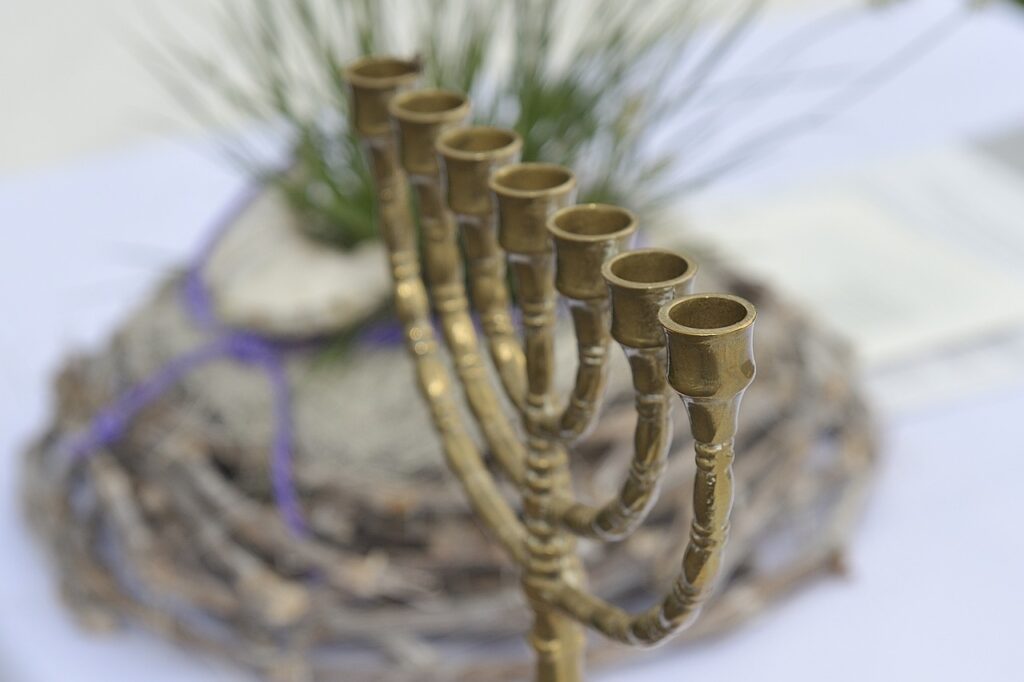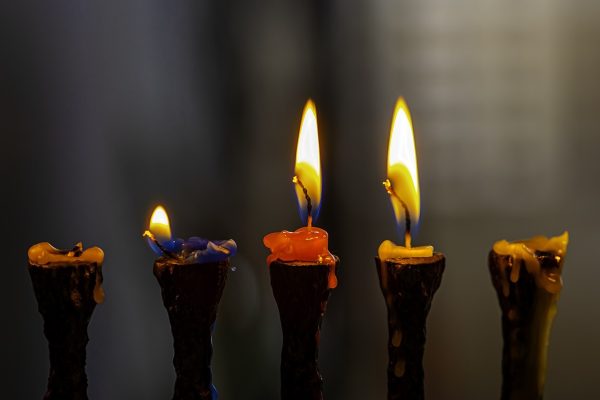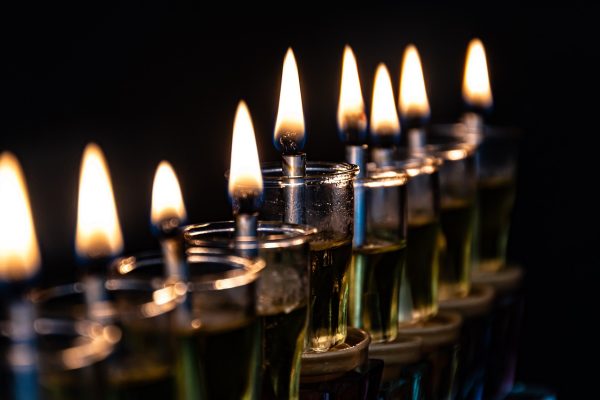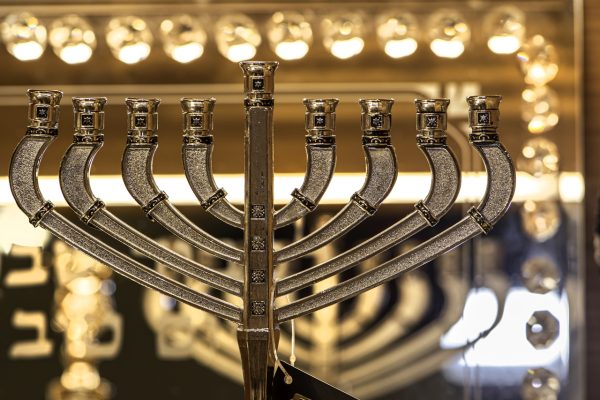Is it okay if my child sits on Santa’s lap?
What if my child sings Christmas carols?
Should I let my child decorate a friend’s Christmas tree?
Is it okay for my child to receive Christmas presents from relatives?
As the December holiday season approaches, I am often asked these questions. Parents often want to know, “Will exposure to or celebration of Christmas holiday rituals negatively influence my child’s Jewish identity?”
My answer to these questions might be surprising to some. For me, the answer is—”it depends upon how you celebrate Shabbat and other Jewish holidays.” In other words, the strength, comfort, and joy of one’s Jewish identity is a year-long process; Jewish identity is not shaped just in December.
One cannot balance the power of the deep family memories that Christmas holds for Christians with Jewish memories of Hanukkah. It just doesn’t work. For all Jewish families, and especially for interfaith families raising Jewish children, Jewish family memories associated with Hanukkah will not hold a candle (not even eight candles with a dreidel added for good measure!) to Christian family memories associated with Christmas.
First of all, Christmas is perhaps the most significant holiday of the Christian year, filled with family memories for most Christians. Most Jewish families have family memories of time spent together on December 25th, too. After all, as a “national” holiday, most people are off from work. Children are not in school. Relatives can come to visit.
Being together is what family memories are made of. For Christians, and many Jews too, December 25th is a prime time of year when families are together. Special shared family times create family memories.
So what is a Jewish family to do? Unless Hanukkah falls right around December 25th, parents are usually working, evening meetings go on, children are in school. So, it is impossible for children, or parents for that matter, to mark this holiday or sadly, many other Jewish holidays, as “special family time” when the family can enjoy being together without being encumbered by their daily routine.
One solution is: Take Jewish holidays off from work. Do not work on Friday evening and Saturday. Teach your children that Shabbat and the Jewish holidays are important times for your family to spend time together. Make the Jewish holidays and the full cycle of the Jewish year a priority for your family memory bank. Take time off to be together. Special shared family times create family memories.
The Jewish year holds virtually unlimited rich opportunities for families memories. Start the New Year with a family outing to an orchard to pick the sweet Rosh Hashanah apples to be dipped in honey. Together, make a favorite apple dessert for a Yom Kippur break fast. Build a Sukkah in your backyard so that you and your children can share the fun of decorating it and eating outdoors together. Participate in a synagogue celebration of Simchat Torah to witness the Torah being fully unrolled—dance, sing, and study Torah together. Keeping the year filled with memories will enable Hanukkah to have its proper place as a minor festival within the context of the Jewish year.
Of course, the most important Jewish holiday for family memories is Shabbat. You have a wonderful weekly opportunity to pause together as a family to enjoy and appreciate the family you have created. Make Shabbat home rituals a sweet and special time in your home. Create Shabbat traditions unique to your family as you welcome the weekly gift of setting time apart from the rest of your busy week. Sing Shabbat songs, eat special foods, say the blessings together, and bless each other. Invite friends and family to join you; encourage Christian friends and family to learn about Shabbat at your family table, too. Special shared family times create family memories.
Celebrating Shabbat and the full complement of the Jewish year will enable you to build wonderful family memories and a clear identity as a Jewish family. As December approaches, the Christmas season will not threaten the Jewish identity of a family that has built these memories together. Just as a solid Christian identity of friends and family will not be altered if they join you at your Shabbat table, so a solid Jewish identity of your children will not be altered if they participate at a Christmas dinner.
Especially for interfaith families, Christmas may provide another important Jewish learning moment for you and your children—how to “Honor your father and mother.” Helping others to celebrate joy in their lives is a Jewish value. Enable your children to understand that they are helping others celebrate Christmas and learn about an important Christian holiday. However, be clear with yourselves and your children—Christmas is not a Jewish holiday. Hanukkah is not a Jewish Christmas.
Interfaith families will see that as the years go by, as your family has experienced the beauty of Shabbat and many other Jewish holidays together, by the end of December, you and your children may be looking forward to planting a tree for Tu B’Shevat or may already be anticipating Purim costumes and Purim gifts. As years are shared together, the box of homemade Sukkah decorations may have as much or. perhaps, more meaning than as a box of cherished Christmas ornaments. (Possibly, some of these festive ornaments may even hang in your Sukkah!)
Optimally, over the years, your non-Jewish friends and family will have learned about your Jewish holidays, too, and have shared in your Shabbat meals, Passover Seders, Sukkah parties, or they have joined you in the apple-picking adventures that launch your family memories of another sweet Jewish year. Optimally, your Christian friends and family have learned to honor you and your holidays and have been a part of your shared family memories, just as you have celebrated with them.
So—”Is it okay for my Jewish child to sing Christmas carols?” I ask the question—”Does your child sing Jewish songs with the same joy and enthusiasm?”
In the question lies the answer. Happy holidays!
This article was originally published on Interfaithfamily.com.












